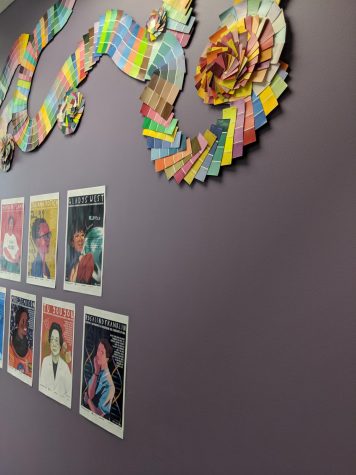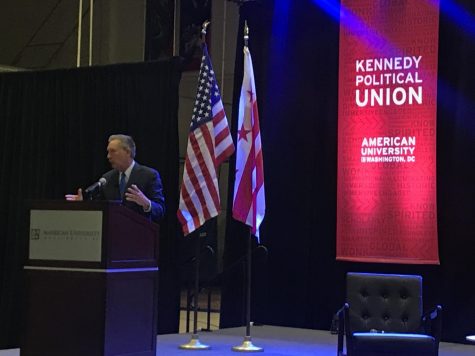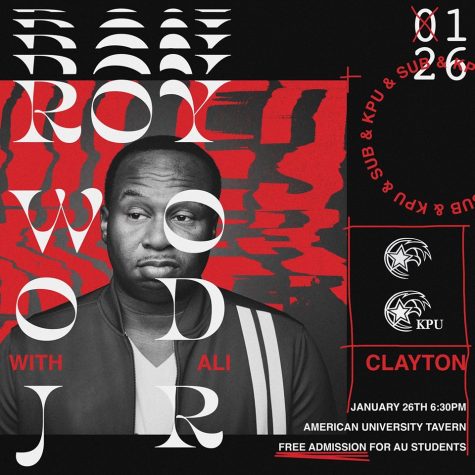Keeping the Streets Saft: The District's Civilian Guardians
They call him Sabertooth. He talks over the whir of subway cars and clamoring passengers. In his fire engine red beret and matching jacket, Marquett Milton, 21, could be mistaken for a security official. But he is an unpaid volunteer for Washington DC’s chapter of the Guardian Angels. For over two decades, this unarmed citizen force has worked for crime prevention and community outreach in the region. Volunteers patrol high-crime areas and Metro stations, acting as visual deterrents to illegal activity. On occasion, they even perform citizen arrests.
The DC chapter is part of a transnational organization that started in New York City when a 23-year-old McDonald’s manager named Curtis Sliwa formed a group called the Rock Brigade. Young volunteers picked up trash in the Bronx and were well-received by their community. But Sliwa noticed another, more urgent need for citizen involvement when the New York City police department cut funding from the transit system in 1979. The lack of law enforcement presence led to an increase in muggings and fights in the subway system.
“Curtis got tired of seeing people attacked,” said mid-Atlantic chapter director and DC captain leader John “Unique King” Ayala. “He said, ‘You know what, I have a group of kids, young people that volunteer and clean up trash in the South Bronx, I wonder if I can get the young people to volunteer and clean up the trash on the subway.’”
Soon, volunteers latched onto Sliwa’s mission, and the 13 original Guardian Angels became known as the “Magnificent 13” in the media.
“They would ride the number four train, which was nicknamed the Mugger Express, and they would patrol it, and when they would see crime, they would step in,” Ayala said. Much like the Guardian Angels today, their presence alone was often enough to prevent criminals from acting.
From the beginning, the volunteers wore their now-signature red berets. Milton explains that the color red was easy to spot in dark train cars. “It’s for safety,” he says. Even now, if Guardian Angels see a crime in progress, they wave their berets to signify an emergency.
The Angels came to DC in the late 1980s. At the time, DC was known as the “murder capital” of the country. Seeing the success of the New York chapter, community members hoped the Angels would help clean up the DC streets.
Today, there are over 130 Guardian Angel chapters across six continents and 17 countries. They patrol major U.S. cities like Chicago, Philadelphia, and Los Angeles and deter crime in places as far as Italy, Israel, South Africa, Japan, and New Zealand. Travel is an important part of being a Guardian Angel, according to Milton. He says he visits different cities to observe how other Angels patrol.
“You’re learning when you’re traveling,” he said, noting that his most important takeaway from these trips has been to make sure that passengers are not pushed from the subway platforms. Milton remembers this tip when he is on patrol in the DC Metro stations.
Crime Prevention
Milton explained most of the job is just being there and making sure people are safe. “Walk around,” he said. “Be a visual deterrent. Make sure there’s no crime going on. Making sure people [are] safe.” Four times a week for three years, Milton has patrolled with the Guardian Angels. You might see him at the L’Enfant Plaza, Anacostia, Columbia Heights, or Adams Morgan Metrorail stops—or what he calls “hot stations”— where crime rates are high. While Guardian Angels try to deter crime by just being present, they also detain suspects, which Milton describes as moments of pride and fear.
Most people think we’re part of the military. Some people think we’re a step team. Some people think we’re just an ordinary group, trying to be like the Power Rangers.
Milton says during an annual Easter egg hunt at the National Zoo, he and other Angels chased a 16-year-old boy suspected of stabbing another teenager, holding the suspect and handcuffing him until the police arrived. Most nights, however, are quiet. “Ninety-nine percent [of the time] we are out here nothing happens. It’s just that one percent, something always happens,” Milton said.
But sometimes that one percent is all it takes. Once, Ayala was stabbed with an ice pick by a drug dealer. Numerous Angels have lost their lives in the line of duty. Though direct crime intervention is minimal, the dangers are real.
Interactions with Police
It might seem like there would be tension between the Guardian Angels and professional law enforcement. But most of the time that’s not the case, according to Officer Phillip McHugh. McHugh is an American University alumni with a Bachelor’s and a Master’s degree from the School of Public Affairs. In a major city with limited police resources, he is grateful for the Guardian Angels’ help.
“Anytime we can have those extra people out there being our eyes and ears, calling us when they see things, that’s a great help to us,” he said. “They have definitely prevented crime. They have apprehended criminals and called us and [we’ve] made arrests as a result.”
To McHugh, the Angels’ community involvement is almost as important as direct crime prevention. Many of the Angels were born and raised in DC neighborhoods and can often build trust with the community in a way that’s difficult for some police officers. McHugh encourages the Angels—along with everyone else—to report suspicious activity to the police. He urges “community responsibility for itself.”
The Angels’ rapport with DC police can be seen in other ways. Some have access to police radios and can contact police directly. Ayala even meets regularly with the police department. Their latest collaboration is an effort to prevent cellphone robbery.
McHugh insists that the Angels do not interfere; however, he says the Angels should remember to take a secondary role, leaving the brunt of police work to police officers.
Vigilantes? And other Angel Controversies
“Most people think we’re part of the military,” Milton said. “Some people think we’re a step team. Some people think we’re just an ordinary group, trying to be like the Power Rangers.” From the beginning, there has been confusion over the Guardian Angels’ identity. They are often classified as vigilantes, a label they do not endorse.
Milton supports the idea that an Angel is just like any other civilian. They follow the law and do not carry weapons.
“If we used a weapon, there’s no point in us being angels,” he said. “Might as well be a police officer. We still have to go by the same rules as a regular citizen.”
When the Guardian Angels started, New York City Mayor Edward Koch denounced them as vigilantes taking over responsibilities that were not theirs to take. In a climate where police were reluctant to give credit for arrests to young, untrained amateurs, founder Curtis Sliwa staged fake rescues to garner publicity.
“He did what he thought he had to do to get attention,” said Ayala, adding that Sliwa came clean in later years. Koch eventually supported the Angels’ efforts, revealing a growing understanding and approval from public officials.
McHugh also rejects the vigilante label. “Some members of the public, some members of the police department even, will characterize groups such as theirs as being vigilantes and trying to take matters into their own hands, but I can tell you that that perception is completely false,” he said. “They are not out there trying to be superheroes or chase down every bad guy that they see. They’re a smart group of people.”






